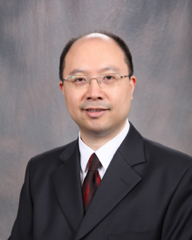Abstract
A major barrier to effective therapeutics for cancers and infectious diseases is that these systems are highly adaptive. Under selective pressures of therapeutics, tumors and bacteria will inevitably evolve therapeutic resistance often through mutating therapeutic targets. Current drug discovery and development processes often react to therapeutic resistance post hoc. In this talk, I will first present a computational scheme that, when interacting with experimental approaches, can help address this challenge a priori. Specifically, we have designed an inverse approach to recast the problem of anticipating resistance mutations into combinatorial protein design; and we have developed an exact algorithm iCFN (interconnected cost function networks) that guarantees the optimal and sub-optimal solutions for multistate protein design. When applied to model ESR1 mutations in metastatic breast cancer, iCFN correctly predicts clinically-validated resistance mutations and provides further mechanistic insights.
Another barrier to therapeutic discovery is the enormous chemical and proteomic spaces, which demands rapid quantification of compound-protein interactions (CPI). There was a lack of computational CPI prediction methods with wide applicability, high accuracy, and mechanistic interpretability. In the second part of the talk, I will present DeepAffinity, our recent AI-empowered method that integrates knowledge- and learning-based approaches to address the challenge using chemical identities and protein sequences alone. Specifically, the semi-supervised deep learning model jointly encodes molecular representations and predicts CPI, with attention mechanisms for model interpretability. Case studies include predicting selective drug-target interactions as well as explaining them in binding sites or selectivity origins.
Speaker Bio
Dr. Yang Shen is an Assistant Professor in the Department of Electrical and Computer Engineering at Texas A&M University. He received his B.E. from the University of Science and Technology of China, Ph.D. in Systems Engineering from Boston University, and postdoctoral training in Biological Engineering and Computer Science at the Massachusetts Institute of Technology. Prior to joining TAMU, he had been a research assistant professor at Toyota Technological Institute at Chicago. Dr. Shen’s research interests are in optimization and learning algorithms for modeling biological molecules, systems, and data. In particular, ongoing projects include prediction and design of protein interactions, mechanistic prediction of protein mutational effects, and resistance-overcoming drug design.
